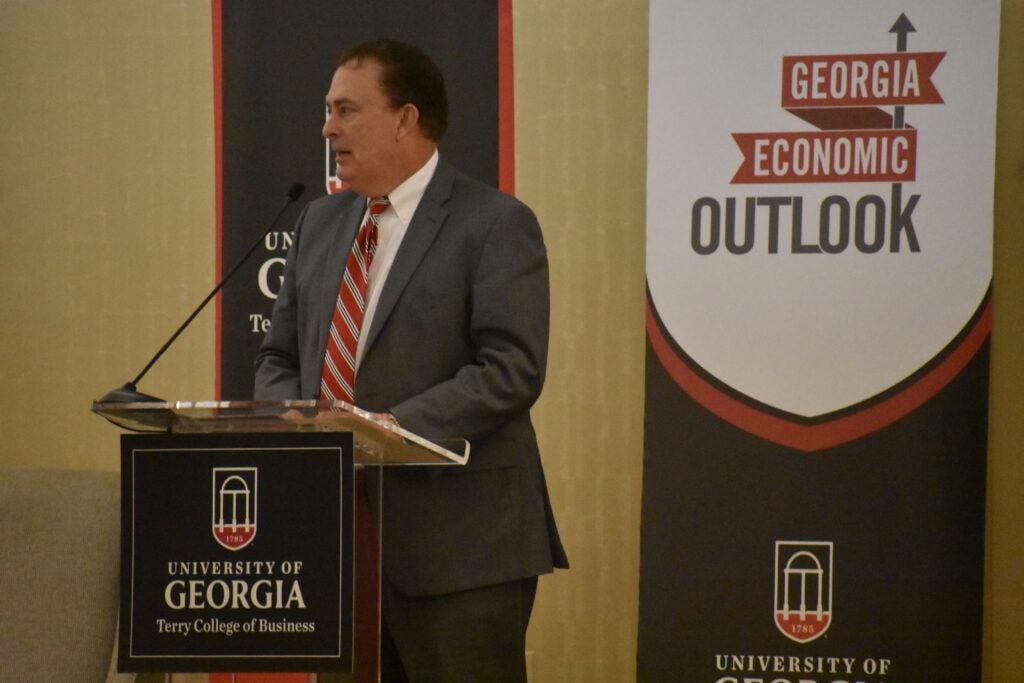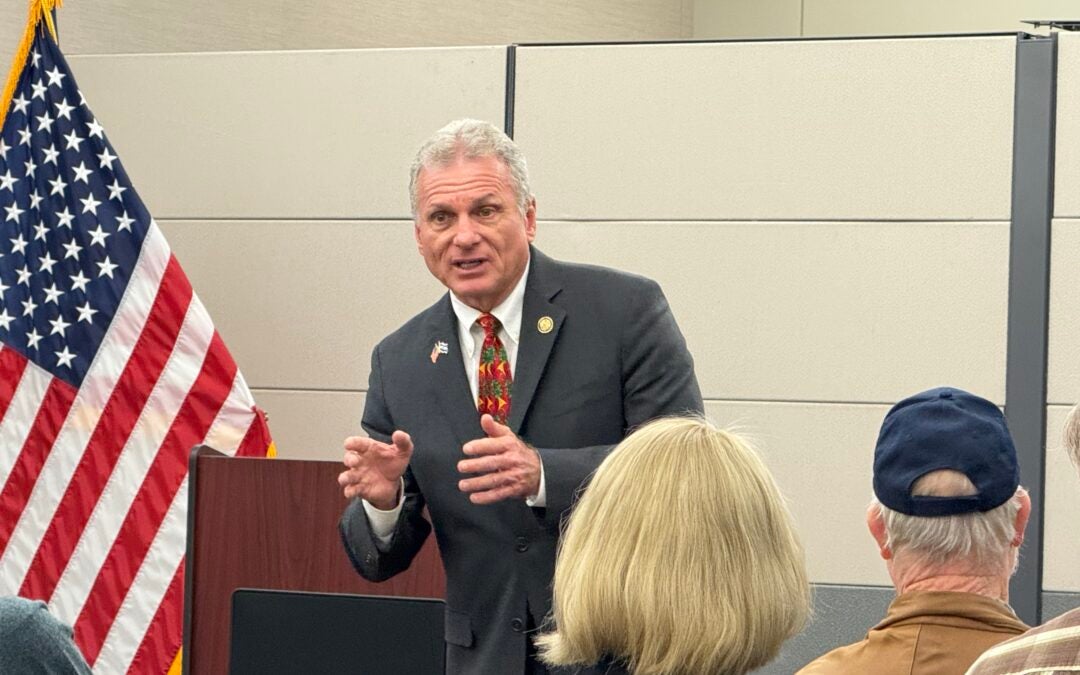Still recovering from the aftereffects of a COVID-19 pandemic, University of Georgia economic experts predict the state’s economy to once again outperform the nation’s economy.
According to UGA staff and researchers, who presented their data on Wednesday afternoon, Jan. 17, the baseline forecast for the nation’s economy calls for an economic slowdown, but not an entire recession.
Assuming no further tightening of monetary policy, staff at UGA are predicting that the inflation-adjusted interest rate will rise as inflation declines, which will result in slow economic growth.
“Our forecast of this year for the state of Georgia does predict an economic slowdown, but the good news is we are not predicting a recession,” said Terry College of Business Dean Benjamin C. Ayers. “The resilient labor market and strong financializations of households are two main reasons why we do expect the post-pandemic economic expansion will continue throughout this year.”
With the U.S. having a just under 50% probability of falling into recession, Ayers said Georgia has a better economic outlook for the year with a 33% probability of recession.
Ayers said Georgia is expected to outperform the U.S. as a result of higher vehicle sales, the end of the writers’ strike, a large and booming cyber-security industry, more headquarters developing in the area, more consulting firms and providers of business services – all of which provide more jobs.
“Job growth this year will slow, but it will not come to a full stop,” he said. “In terms of [gross domestic products] and job growth, we will outperform the nation.”
In addition, Ayers said UGA expects inflation to ease; however, the U.S. economy will be vulnerable to several other factors posing a risk, such as: an energy-price shock, a stock market crash, a federal fiscal policy blunder, a monetary policy mistake, another banking crisis, major labor disputes or NATO getting drawn into a Russia-Ukraine war.
“Thus, we forecast a dangerously high 40% probability of a U.S. recession in the coming year,” stated the economic outlook report.
Risks that push the U.S. towards a higher probability for recession, Ayers said, include major missteps by the Federal Reserve, financial and banking crises, an energy price shock, stock and home prices collapsing and border military conflicts.
“We are not predicting all these things to happen – these are simply risk factors,” said Ayers. “Each of these factors alone could trigger a recession.”
Despite the many distresses that could lead to a national recession, Ayers said Georgia citizens should feel more assured in the state’s slowing-growing economy.
“There are a lot of things here in our state that work in our favor,” he said. “There’s more people moving to our state who will likely be added to the workforce.”

To Ayers, a crucial staple in developing a knowledgeable workforce is through work-based training and education in local schools.
“We have to make sure that we have individuals who are very well-trained in their jobs,“ he said. “One of the reasons why we’ve been so successful as a state is that we do have regular workforce development.”
With mortgage rates at a 20-year all-time high, Ayers said housing in a post-pandemic world is one of the biggest factors that can affect several parties. However, he is confident Georgia can handle the possible challenges ahead.
“Our forecast depends on the resilient labor market and the strong financial positions of households to sustain the post-pandemic economic expansion,” he said. “Georgia is well positioned to weather any slowdown and will once again outperform the nation’s economy with the buildout of many larger projects, the economic pipeline, and the stronger demographic trends of people moving to our state which increases our labor force.”
Following Ayers, keynote speaker Cal Wray, the president of the Augusta Economic Development Authority, emphasized Georgia’s several “great partners” – corporations and headquarters – that are providing hundreds of jobs.
“Our workforce is trending upward which helps fill out all these jobs being announced and created,” he said. “
However, Wray said notable CSRA industries and institutions, such as Augusta University, the Savannah River Site and Fort Eisenhower, are struggling to retain and engage workers.
“Now here is the concern … back in 2018, we were at a 56% participation rate. We are not at a 54% participation rate. These are lots of people who were sitting on the sidelines, not looking for a job,” he said. “So we have to consider how do we get them back in the workforce? How do you get them to get back into the economy?”
With an expected 11,000 to 13,000 jobs coming to Georgia over the next five years, Wray said addressing the lack of work participation will be crucial to steadying and uplifting the economy.
After Wray discussed the continued development of multiple companies and corporations within the state, business owners left pondering the possible future of the nation’s and state’s economy.
For more information on UGA’s economic outlook, visit: https://www.terry.uga.edu/events/eo/.
Liz Wright is a staff writer covering education, lifestyle and general assignments for The Augusta Press. Reach her at liz@theaugustapress.com












